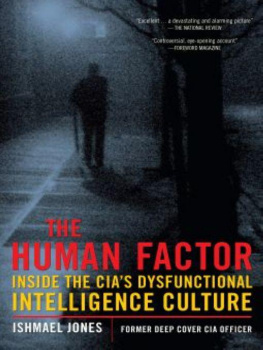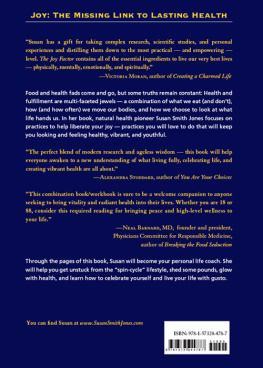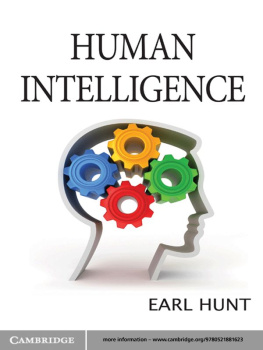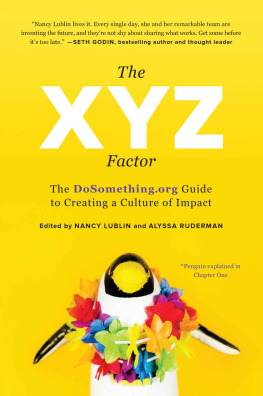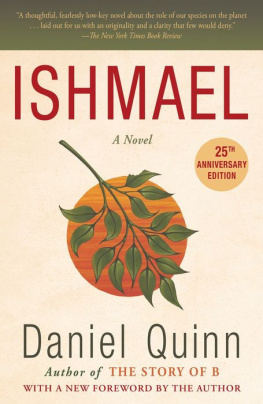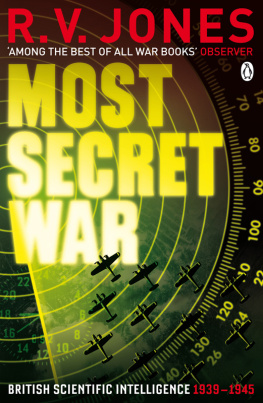Table of Contents
Praise for The Human Factor
This book should be required reading for anyone who serves in our government or is served by it. But beware: Reading The Human Factor will make you very, very angry. For Ishmael Jones, better than any previous spook, peels back layer upon layer of deception to show how dysfunctional the CIA is. Even in the wake of 9/11, when the CIA was inundated with fresh funding, it failed to cure its cultural ills or to dispatch large numbers of clandestine operatives abroad without State Department cover. Ishmael Jones has served his nation honorably and bravely as a member of the CIAs Clandestine Service, but he has provided no greater service than to risk his former employers wrath to alert us to the CIAs continuing, crippling woes.
Max Boot, senior fellow in national security studies, The Council on Foreign Relations; author of The Savage Wars of Peace and War Made New
Jones (the cover name the Agency gave him during his first training course), a Marine who joined the Agencys clandestine service and became a case officer in the late 80s, paints a devastating and alarming picture of a vast bureaucracy he calls a corrupt, Soviet-style organization.
Michael Ledeen, National Review Online
Mr. Jones obviously believes that the United States deserves the best intelligence organization in the world. He believes passionately that every American taxpayer is being cheated because we are paying scores of billions of dollars for a bloated, ineffective, risk-averse organization that cannot perform the mission for which it was created.
John Weisman, The Washington Times
Praise for The Human Factor
Ishmael Jones represents an altogether uncommon breed of CIA officer, one willing to risk life and career in the pursuit of gathering better intelligence. If the CIA as a whole shared this one officers relentless pursuit of WMD sources, terrorists, and the rogue nations that support them, then we might find ourselves in a much safer world today. With his book The Human Factor , Jones relates the details of his extraordinary career with a notable lack of bravado and a tremendous amount of dry wit.
Lindsay Moran,
Author of Blowing My Cover: My Life as a CIA Spy
[ The Human Factor ] is an extremely engaging and readable memoir of one mans quest to protect his nation from attack and his frustration at not being allowed to, while money allocated for the purpose is being wasted. In fact, if the book were not so deadly serious, it would be one of the funniest books of the year.... The Human Factor is an enormously important book and a surprisingly accessible read. Hopefully, it will propel the reform debate beyond the usual tinkering.... Call him Ishmael, or not, but I call him a patriot.
David Forsmark, Frontpage Magazine
Scathing - and unauthorized.
Congressional Quarterly
One good spy is worth 10,000 soldiers.
Sun Tzu
I would trade every satellite in the sky for one reliable informant.
Army Lieutenant Colonel Ross Brown,
Cavalry Squadron Commander,
3rd Armored Cavalry Regiment,
South of Baghdad
Preface to the Paperback Edition
H uman source espionage in its most basic form is just a one-on-one meeting in which a CIA officer gathers secret information from a human sourcea person who has access to secrets, for example, on terrorist organizations or nuclear proliferators. These meetings tend to occur in dingy hotel rooms in dysfunctional countries. Its hard, lonely work, far away from friends and family, and theres always the chance that the local police will break down the door and rearrange your schedule. But its the fundamental work of espionage, and an intelligence service must be designed to motivate its officers so that they are eager to get out each day and gather the intelligence that the president needs.
The CIA drives its officers to do other things instead, and this is why the CIA must be fixed.
Many CIA officers spend their careers within headquarters rather than out in the field, because thats what the system requires them to do. CIA officers naturally want to advance their careers, to gain power and praise, and to be promoted. The CIA system plays into these natural desires and perverts them. For example, any CIA officer who had gone out to hunt Osama Bin Laden would have had to live and work for years in remote countries, alone, outside of American embassies. Such a person would have been unable to network and build connections and friendships with CIA managers at headquarters, unable to manage the budgets or to rise through the management layersprocesses that are vital to a CIA career. Anyone who had gone out into the field to find Bin Laden would have returned years later, unknown to anyone at headquarters and unpromotable.
Spying is important. Its the second-oldest profession. The president, as commander in chief, needs good intelligence to defend Americans. Whole cities could be lost to nuclear attack, and a small ally like Israel could be completely destroyed. Nuclear weapons are based on 1930s technology and are increasingly available. Some nations are proud of having joined the elite club of nuclear powerslike the unpopular schoolboy who brings a semiautomatic rifle to school one day to show everyone that he is a person of consequence.
The CIA has few of the human sources of intelligence that the president needs in order to deal with threats such as nuclear proliferation. I remember looking over one list of sources that was to be shown to the president and members of Congress. At first glance this list looked impressive, each source with his official cryptonym. Then I realized, hey, the number-one source is a guy Ive met only a couple of times, and he hasnt been recruited. And I know this guy on the list, and I know that guy, and they dont have any real access to secrets. And I know these other guys on the list, and theyre American citizens who live in the United States, and they shouldnt be sources at all.
Since the hardcover edition of this book was published, Ive continued to work for reforms to improve the quality of intelligence provided to the president. Ive taken aim at the CIAs lack of operational and financial accountability. Ive proposed solutions to the two groups that can make a difference: politicians and journalists. Ive explained that the CIA is systemically flawed but the quality of its employees is high.
Working to fix the CIA resembles the often lonely and boring work of espionage: finding the right people to talk with and going to meet them. Ive spent a lot of time traveling, staying in hotel rooms, walking the halls of Congress, meeting people, visiting scholars at institutes, and writing articles. Just as during my spy career, I work in alias.
There have been some minor, incremental improvements in CIA intelligence collection since The Human Factor first came out. The U.S. military has sought to fill gaps in CIA intelligence by collecting some human source intelligence on its own. The FBI has taken over elements of terrorist interrogations. But ultimately, as I stated in the hardcover edition, we will need the window of opportunity opened by the next major intelligence failure to enact real reform. The CIA bureaucracy is simply too powerful to be shaken up otherwise. My work is designed to build credibility and contacts, and to convince Americans on what needs to be done, so that when a dirty bomb detonates over New York or Washington, D.C., well be positioned to enact intelligence reform.
A step toward operational accountability by President Obama upon winning the election was the appointment of Leon Panetta as CIA chief. Panetta was significant for what he was not: a career CIA bureaucrat. The CIA and its allies had championed one of the Agencys own, who happened to be the man I nicknamed Suspenders in The Human Factor. Suspenders had a charismatic ability to rise within the CIA, but no record of producing intelligence. Panettas appointment caused some dismay among conservatives because he was a political operative with no intelligence experience. But the important thing was that the new CIA chief be someone the president trusted. I wrote articles in support of the nomination in the Washington Times and National Review.


